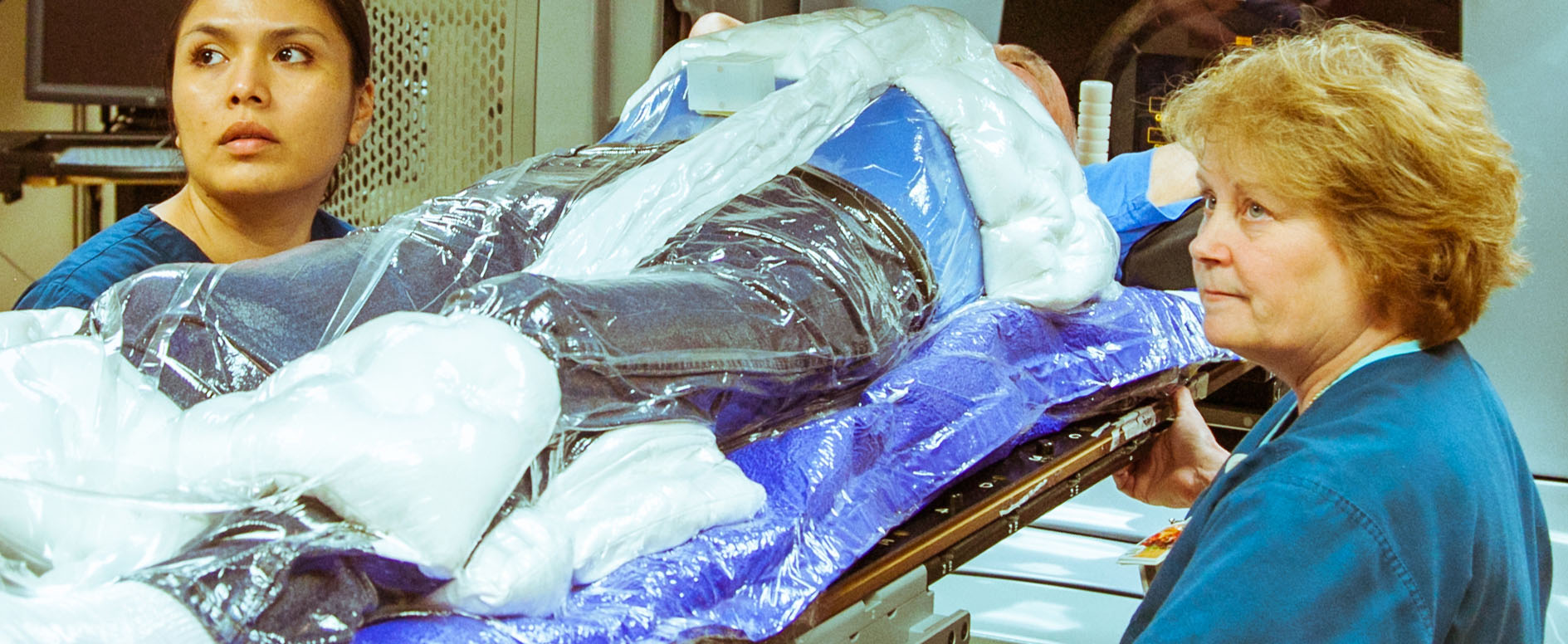
Lung cancer treatment depends on several factors, including the type, the mutations specific to the cancer, the stage of the lung cancer and your overall health. Treatment of lung cancer often requires input from a multidisciplinary team, including radiation oncologists, medical oncologists, thoracic surgeons and lung doctors (pulmonologists).
Radiation Therapy
Radiation therapy is a noninvasive treatment that can be used to treat lung cancer. It can be combined with surgery, chemotherapy or both depending on the circumstances. Radiation therapy works within cancer cells by damaging their ability to multiply. When these cells die, the body naturally eliminates them. Different types of radiation may be used for lung cancer including X-rays or proton beam therapy.
In early-stage lung cancer, surgery has been the standard treatment. However, in patients unable to tolerate surgery, focused radiation, called stereotactic body radiation therapy, is a good treatment option. For large tumors or those involving lymph nodes, radiation (often combined with chemotherapy) may replace surgery as the main treatment. For more advanced cancers, your doctors may recommend radiation to manage symptoms such as cough, shortness of breath, pain or bleeding.
Medical Therapy
Medical oncologists specialize in treating lung cancer using various drugs. Chemotherapy is a cancer treatment that uses drugs to destroy cancer cells and prevent tumor growth. There are additional different kinds of medications that can be used to treat lung cancer. New research is helping oncologists learn which drugs may be most effective, and the side effects for each one.
Often, chemotherapy is combined with radiation therapy to make the radiation more effective. However, such combined treatment (chemoradiation) can also increase the side effects of treatment. Chemotherapy may be recommended before or after surgery
Other types of medications including targeted therapy or immunotherapy may be a part of your treatment. Targeted therapy are drugs that work on specific types of cancer cells. Immunotherapy are drugs that harness the body’s immune system. These different treatments have their own side effects. These therapies may be given before, during or after radiation treatment. Ask your medical oncologist about what drugs may be best for you.
Surgery
Surgery is often a key part of lung cancer care. Even before treatment, surgery may be helpful in diagnosis and investigating whether the cancer has spread to lymph nodes in the chest. This type of surgery is part of tumor staging or understanding how advanced the cancer may be.
In early-stage tumors, surgery by itself can be curative. Your surgeon may remove part of the lung or the entire lung around the cancer. The amount of lung removed will vary based upon the tumor’s location, your health and other factors. If there are no signs of spread, additional treatment is often not needed.
In more advanced tumors, surgery is sometimes replaced by radiation and chemotherapy or can be combined with these treatments. Ask your surgeon or other doctors whether your tumor is early or advanced and whether surgery will be helpful for you.






